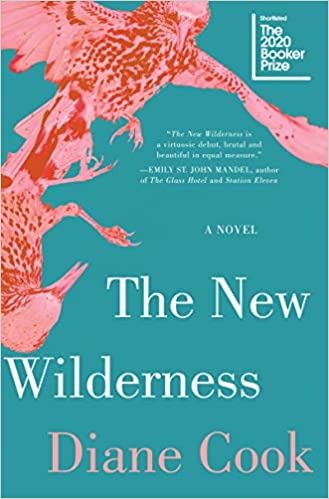Dystopian novels are coming out of the woodwork these days, and they are not really my thing, but I read The New Wilderness for my Booker Prize project. That being said, I have read some excellent dystopian novels, the Maddaddam trilogy being one of them.
All of the land has been put under production to support the population of the City except the Wilderness State and possibly the rumored Private Lands. The City has become dangerous, though, with such polluted air that Bea’s little daughter Agnes was dying. So, Bea and her scientist partner Glen proposed an experiment—to go with a small group of people to live in the wilderness without making their imprint.
At the beginning of the novel, the Community has lived in the Wilderness State for several years. They started as a group of 20, but several have died. They are living under strict conditions. They’re not allowed to settle anywhere or build structures. The Rangers appear periodically to tell them to move to another Post.
The group has been making decisions by consensus, but it’s clear that Carl and his partner Val would like to be in charge. Glen seems to have little control over his own experiment.
A lot of the novel is devoted to the relationship between Bea and her daughter, who is growing up a bit feral. Eventually, Agnes becomes the main character, which was unfortunate, as I didn’t find her very interesting. In fact, the characters are mostly just used as emblems. They aren’t very dimensional.
Life in the Wilderness State is so brutal that I couldn’t imagine the City being worse. I can understand the comparisons to The Hunger Games that I saw repeatedly on Goodreads, even though no one is trying to kill anyone. I see more of a legacy of Lord of the Flies in Community politics.
I found that my interest in the novel came and went, mostly with Bea. She is not in the book, however, for large portions of it. For me, this novel was mildly interesting at times, but I wasn’t sure I believed very much in how Cook makes her characters behave. Right at the beginning, for example, a couple of characters die and the reaction of the rest is sort of, oh well, these things happen. An explanation that when you’re so close to death, you get inured to it eventually emerges, but I think Cook gets that wrong. Maybe that happens in war, but I think that a hunter-gatherer group would feel the losses as much, if not more, than anyone else, because the group is so small. This struck me as wrong from the start.
One more comment—a quote from Publishers Weekly calls the novel “darkly humorous.” On the contrary, I didn’t think that the novel showed any humor at all or even tried to.


I have been trying to decide if I want to read this one. (And it’s a big decision because it’s a big novel – haha!) I have tried a few other dystopians lately and I tend to like them if they have a fresh take on the world.
I love that you mention the Maddaddam Trilogy – that was good!
I don’t think I would have read it if it hadn’t been for my project. It’s not terrible but not very riveting either.